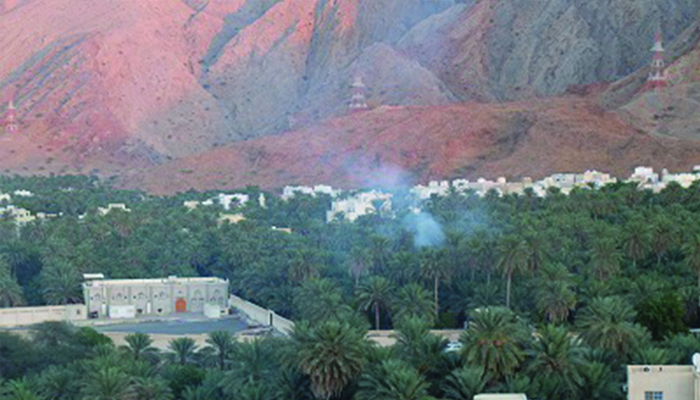
Muscat: Burning agricultural waste is becoming quite a practice in the agricultural regions of the Sultanate. Reasons for this are not far to seek; this is one of the cheapest and fastest ways of disposing agricultural waste. Besides, little or no effort is involved. This explains the spread of an otherwise negative practice among the farming communities.
What is lost sight of, however, is the adverse effects that the practice wreaks on the environment with all the toxic gases, including carbon dioxide, other harmful compounds and fumes left hanging in the atmosphere posing a serious threat to the health of people living in the vicinity and outside. Then there is the decrease in soil fertility caused by this practice which is often glossed over.
Fadel Al Ameri, head of the Public Hygiene Department in Muscat Municipality in Bausher explains that the process of burning agricultural waste has become the norm rather than an exception, and the magnitude of this harmful practice has become alarming. He continues: “There are a number of reasons why people choose to burn agricultural waste; it is a low-cost method and does not require much physical effort.
“But it poses significant risks to the environment around and is a serious threat to the public health as the air becomes burdened with toxic compounds and also leads to decreased soil fertility.”
Not that laws and legislations to prevent this harmful practice are not in place in the Sultanate, but such easy options continue to find a place in the farming community’s regimen.
But since its disadvantages by far outweigh its advantages, the government has had to chip in to combat this harmful practice. It came up with a number of deterrent legislative measures to protect the environment, combat pollution and promote public health; there is Royal Decree No. 114/ 2001 that stresses the protection of local environment along with controls to ensure that Omani environment remains free of pollution.
In line with this, local order no. 55/ 2017 has been brought in which lays down punitive action against anyone who dumps or burns solid waste.
The Muscat Municipality too has come up with a local order no. 1/ 2006 which, under Article 11 stipulates that people are prohibited from dumping, leaving, placing or burning any waste in public places or disposing of it in places other than the disposal sites specified by the municipality.
To curb the adverse consequences that may arise from individual unhealthy and non-urban practices and to handle solid agricultural waste in large quantities, the Muscat Municipality emphasises its safe disposal at existing landfills in al-Amerat and Barka.